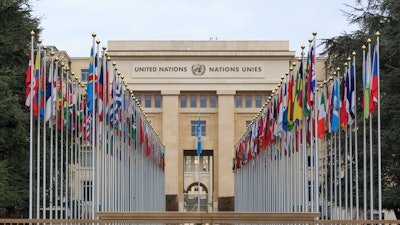
In its Annual Report 2022, the United Nations' International Narcotics Control Board (INCB) sent a warning regarding the legalization of recreational cannabis. The INCB says recreational legalization violates the 1961 Single Convention on Narcotic Drugs, an international treaty that controls the use of narcotic drugs for medical and scientific uses. The treaty also created the INCB.
The INCB says recreational cannabis results in higher consumption and a lower perception of risk, particularly among young people, which the board finds most concerning.
In the United States, it has been shown that adolescents and young adults consume significantly more cannabis in federal states where cannabis has been legalized compared to other states where recreational use remains illegal. The INCB says there has also been evidence that general availability of legalized cannabis products lowers the perception of risk and of the negative consequences involved in using them.
New products, like edibles or vaping products marketed in appealing packaging have increased this trend and the INCB believes it has also contributed to the culture trivializing the impacts of cannabis use.
'The expanding cannabis industry is marketing cannabis-related products to appeal to young people and this is a major cause for concern as is the way the harms associated with using high-potency cannabis products are being played down," INCB President Jagjit Pavadia said in a statement.
In all jurisdictions where cannabis has been legalized, INCB says the data show that cannabis-related health problems have increased. For example, between 2000 and 2018, global medical admissions related to cannabis dependence and withdrawal increased eight-fold; and admissions for cannabis related psychotic disorders have quadrupled worldwide.
Young people, whose brains are still developing, are particularly affected by negative health effects of habitual cannabis use. This can impact their educational outcomes and social behavior.
Statistical evidence from Colorado has shown that fatal traffic accidents with drivers under the influence of cannabis nearly doubled from 2013 to 2020.
Part of the problem is the persistent illicit market. The main objective for legalizing cannabis has been to reduce criminal activities and increase public health and safety. However, in the new report, INCB shows that this objective has failed. Data show that illegal cannabis supply continues at high levels in all legalized jurisdictions, reaching 40 percent in Canada, nearly 50 percent in Uruguay and even 75 percent in California.
Generating tax income was another important goal for governments. The INCB says that while tax income from cannabis sales has increased year over year in Canada and the U.S., tax revenue has been lower than expected, making up only 1 percent of the budget in legalized states.
By formally legalizing recreational cannabis, INCB is concerned that states are violating drug control treaties that require that use of drugs be limited to medical and scientific purposes, adding that the impact on society has not been sufficiently studied.
The INCB says recent data from countries is limited and often too new to draw meaningful conclusions. Legislative models also vary greatly between countries making it difficult to compare frameworks and make predictions about successes and failures.
INCB stresses that the effects of cannabis use on individuals and societies should be studied further before governments make long-term binding decisions.
As legalizing cannabis for non-medical use violates the drug conventions, the INCB does note that decriminalization offers an alternative route to handling cannabis offenses.
Some countries have shifted their policies for drug-related offenses and reduced offenses for personal cannabis use to minor infractions or removed criminal sanctions altogether.
The INCB also warned of the power of corporate persuasion as large corporations have expanded into the medical and adult cannabis markets emerging around the world. Many companies lobby to lift cannabis prohibition. In the U.S., the legal sale of cannabis products is one of the fastest growing industries, generating $25 billion in sales in 2021, a 43 percent increase from the year before.
In the report, INCB clarifies that the cultivation and use of cannabis for medical purposes is permitted, as long as certain conditions of the conventions are met surrounding licensing and national controls. However, in some states, medical cannabis programs are operating without these controls and without meeting WHO standards related to manufacturing and prescribing.






















